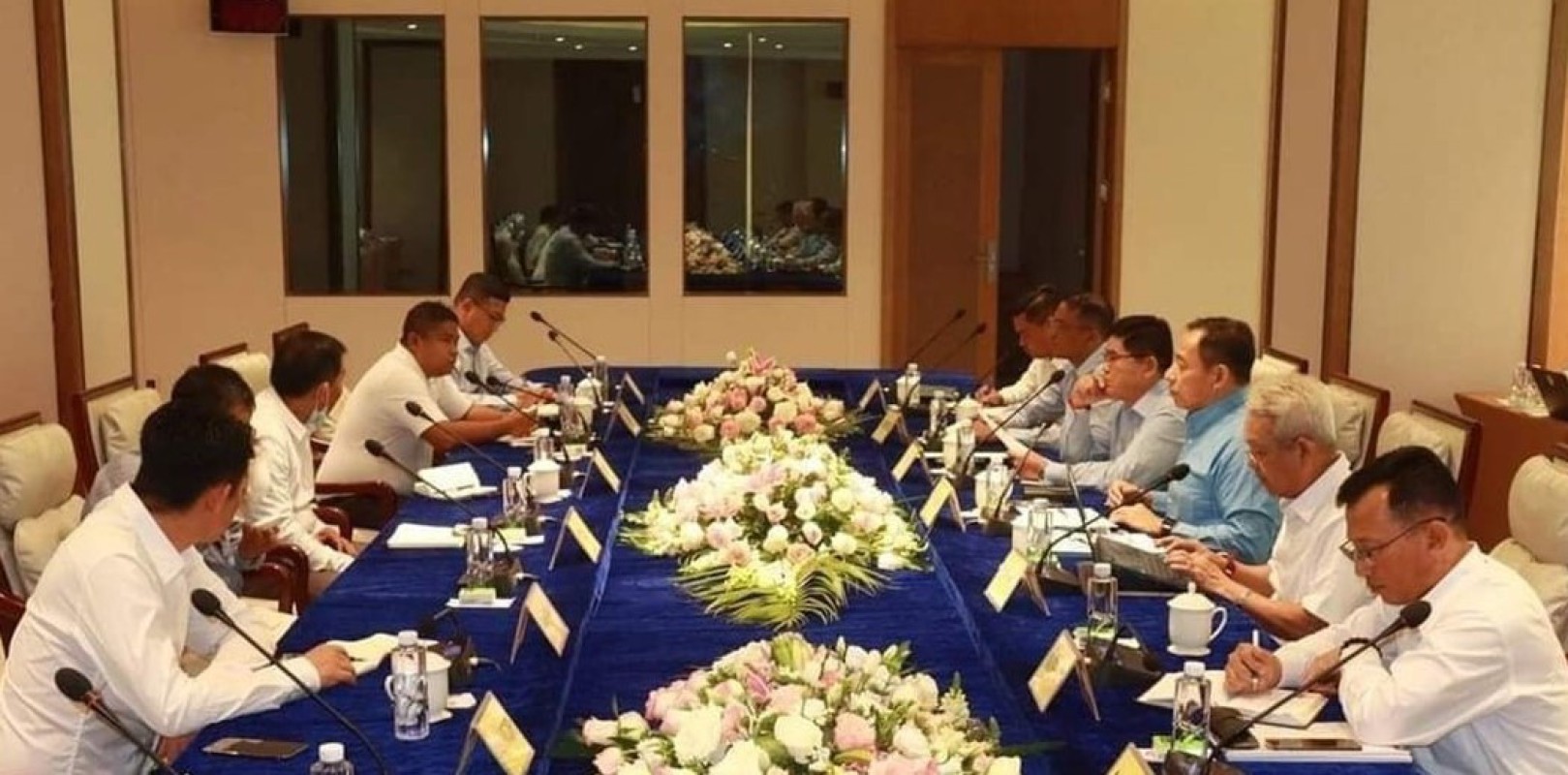Myanmar engages talk with northern insurgents as mediated by China

643

Written by Tun Mon Thet
The National Solidarity and Peacemaking Negotiation Committee (NSPNC) of the Myanmar government held a peace talk with three alliance groups of so-called ethnic insurgents in Kunming of the People’s Republic of China.
The talk was mediated by China.
Spokesperson of the State Administration Council Major General Zaw Min Tun also confirmed that the peace talk was held between officials of the NSPNC and representatives from Kokang insurgents (MNDAA), Ta’ang insurgents (TNLA), and Rakhine insurgents (AA) as China brokered on the issue. The talk was aimed to resolve the conflict by means of political negotiation.
With regard to the talk, the spokesperson of the Chinese foreign ministry Mao Ning remarked that it is necessary to ease the situation in northern Myanmar which is also in the interests of all parties and conducive to peace and stability of the Myanmar-China border area.
Major General Zaw Min Tun said, “There are progresses upon this discussion. We plan to hold another series of talks approximately by the end of this month.”
China says ‘positive results’ were gained from the peace talks over the northern conflict of Myanmar.
The alliance of three ethnic insurgents led by the MNDAA with TNLA and AA initiated the armed assault under ‘Operation 1027’ on 27 October. Massive numbers of troops of the insurgents (thousands in number) attacked two-digit troops having security outposts and police posts on the borderline with China.
The front line of the abovementioned assaults were reportedly PDF terrorists marching at the foremost site. Hundreds of PDFs and insurgents, as well as many Tatmadaw personnel, lost their lives on the battlefield. As a matter of fact, all Tatmadaw personnel, the PDFs, and the insurgent troops are Myanmar citizens whereas most leaders of the ethnic insurgent groups hold dual citizenships of both Myanmar and other nations.
Due to the immensely large numbers of troops from the enemy side, usually a thousand to two-digit ratio, some Myanmar police posts had to retreat.
Thousands of residents and local people had to flee the aftermath of the conflicts.
Despite the peace talks, clashes were still occurring in the surrounding areas of Lashio, Muse and Laukkai in Shan State, as the locals reported.
On 11 December, clashes were intense in the area between Muse City and the 105 Mile Trade Zone between Tatmadaw and the insurgents of Kokang and Ta’ang. Locals also reported that there were some air strikes over the battle area. The clashes continued on 12 December, residents say.
As insurgents from Shan State initiated the battles in October, the Rakhine insurgent AA also created armed conflicts in Rakhine State on 13 November with the purpose of formulating multiple frontlines for the Myanmar Military.
Generally, Myanmar’s ethnic issues and battles with ethnic insurgents aren’t just simple in every moment. There always are invisible hands behind the scenes since the country has been manipulated by the superpower nations, especially the West bloc.
However, the Chinese spokesperson said, “Beijing would "continue to provide support and facilitation to this end.”